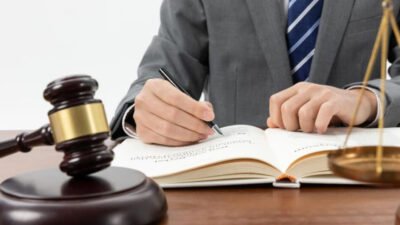Facing criminal charges can be an unsettling experience that often brings confusion and fear. Many people feel uncertain about what happens next or how long the process will take.
In Georgetown, Texas, the criminal justice system follows a structured series of steps designed to uphold fairness, protect rights, and ensure accountability. From the first moments after an arrest to the resolution of a trial, every stage plays a distinct role in determining the outcome of a case.
Understanding how each part of this process works can help individuals feel more prepared and less overwhelmed as they navigate this challenging journey.
The Importance of Seeking Professional Guidance
One of the first and most crucial steps after an arrest is to secure experienced legal representation. Having a knowledgeable attorney ensures that your rights are protected from the very beginning.
An experienced Georgetown criminal defense attorney can evaluate the details of the case, explain legal options, and help build a strong defense strategy. Professional guidance during these early stages can prevent missteps that might harm your case later on.
Legal representation also provides emotional reassurance, as your attorney becomes both an advocate and an advisor throughout the proceedings. They handle communication with prosecutors, interpret complex legal documents, and ensure that all procedures are followed properly. Without expert support, navigating the justice system alone can lead to confusion and unintended consequences.
The Arrest and Booking Process
The criminal process begins when law enforcement believes a person has committed a crime. An arrest may occur with or without a warrant, depending on the circumstances. Once detained, the individual must be informed of their rights, including the right to remain silent and the right to an attorney. Afterward, they are taken to a booking facility where personal information, fingerprints, and photographs are recorded.
Following booking, the individual may remain in custody until their initial appearance before a judge. This appearance typically occurs within a short period after arrest. At this stage, the judge reviews the charges, explains the accused’s rights, and decides whether to set bail.
The Arraignment and Entering a Plea
The arraignment marks the formal presentation of charges. During this hearing, the defendant is asked to enter a plea—guilty, not guilty, or no contest. This step is more than a procedural formality; it shapes the course of the entire case. A plea of not guilty means the case will proceed toward trial, while a guilty plea may lead directly to sentencing.
At this stage, having legal counsel is especially vital. An attorney can assess the evidence, determine the best plea to enter, and prepare for possible negotiations or defenses. Entering a plea without understanding the full implications can have long-lasting effects, which is why professional advice is indispensable.
Discovery and Pretrial Motions
After the arraignment, both sides begin preparing for trial through a process known as discovery. This phase involves exchanging evidence, such as police reports, witness statements, and any physical items relevant to the case. The defense reviews all available information to identify inconsistencies or potential weaknesses in the prosecution’s argument.
Pretrial motions often arise during this phase. These motions allow the defense to challenge the admissibility of evidence or question the legality of how certain information was obtained. If successful, such motions can significantly alter the direction of a case, sometimes even leading to dismissal of charges. Each decision during this phase requires careful legal analysis and strategic planning.
Negotiating Plea Agreements
Before a case reaches the courtroom, both sides may discuss the possibility of a plea bargain. A plea agreement is an arrangement in which the defendant pleads guilty to a lesser charge or accepts a reduced sentence. This can save time and limit the uncertainty that comes with a trial.
However, agreeing to a plea deal is never a simple decision. It must be carefully weighed against the strength of the prosecution’s evidence and the potential penalties if convicted at trial. An attorney’s insight is invaluable during these negotiations.
Preparing for Trial
When negotiations fail or when the defendant chooses to assert their innocence, the case moves toward trial. Preparation for this stage is extensive and meticulous. The defense team examines every piece of evidence, interviews witnesses, and develops arguments that support the client’s version of events. They may also consult expert witnesses who can analyze specific aspects of the case, such as forensic evidence or technical data.
This preparation helps ensure that the defense is ready to respond effectively to the prosecution’s claims. The attorney also works closely with the defendant to explain courtroom procedures, potential questions, and expected outcomes.
Inside the Courtroom: The Trial Process
The trial is the most visible stage of the criminal justice process. It typically begins with jury selection, where both sides question potential jurors to ensure fairness. Once the jury is seated, opening statements are made, outlining the arguments each side intends to prove.
The prosecution presents its evidence first, calling witnesses and submitting exhibits to establish guilt beyond a reasonable doubt. The defense then has the opportunity to cross-examine these witnesses and present its own evidence.
Verdict and Sentencing
If the jury finds the defendant not guilty, the case ends immediately, and the individual is released. If found guilty, the process moves to sentencing. The judge determines the appropriate punishment based on the severity of the crime, prior history, and any mitigating factors presented by the defense. Sentencing options may include probation, community service, fines, or incarceration.
The Emotional and Personal Impact
Beyond legal procedures, the journey from arrest to trial can deeply affect a person’s emotional and personal life. Feelings of uncertainty, fear, and shame are common. Relationships may become strained, and the future can seem unclear. Having a strong support system and reliable legal guidance can make a significant difference during this difficult period.
While the criminal justice process may appear daunting, understanding it provides a sense of control and direction. Each stage—from the initial arrest to the final verdict—serves a purpose in ensuring justice is carried out fairly.



